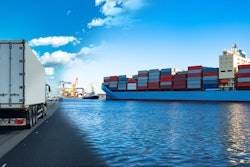
This week saw the resignation of Canadian Prime Minister Justin Trudeau as he intends to step down from the job as leader of Canada's Liberal Party. Now, along with mounting pressures between the U.S.' incoming administration and the Canadian government, Canada faces the task of new leadership which will continue to have an impact on geopolitics.
In the supply chain, eyes look towards the future of tariffs and cross-border relationships with the U.S. According to CEO and chief agent at Allianz Trade in Canada, David Dienesch, the changes in Ottawa, along with the threat of tariffs from Canada's largest trading partner are impactful on businesses.
"In 2024, we saw a record number of Canadian business insolvencies. At this time, it is difficult to assess the potential economic implications of Prime Minister Trudeau’s resignation. However, as we’ve seen a slowdown in the Canadian economy and the potential for a reduction in global trade due to higher tariffs and a perceived weakening in our bargaining position with the USA, this could certainly put financial strain on Canadian businesses," says Dienesch. "Furthermore, lower productivity is making Canadian businesses less competitive globally, impacting exporter growth on the global stage."
The key to overcoming the challenges, in Canada and the U.S., comes in the form of diversification. For Dienesch, resiliency starts when a business explores new trading partners and capitalizes on trade agreements beyond North America, while also expanding within Canada despite internal trade barriers.
Specifically for businesses in the supply chain, diversifying suppliers, transportation methods and distribution channels can reduce dependency on single sources and minimize disruptions caused by geopolitical tensions or market volatility. This also allows companies to adapt to fluctuating consumer demands and global trends to safeguard stability.
"Protecting against exposures, particularly by strengthening credit management practices with financially weak partners in tariff-impacted industries, is crucial," says Dienesch.
Though we may not know what the future of the U.S.-Canada relationship looks like, taking steps to minimize risks stemming from tariffs, regulations and more will serve business in both countries well as we move forward in 2025.













![Pros To Know 2026 [color]](https://img.sdcexec.com/mindful/acbm/workspaces/default/uploads/2025/08/prostoknow-2026-color.mduFvhpgMk.png?ar=16%3A9&auto=format%2Ccompress&bg=fff&fill-color=fff&fit=fill&h=135&q=70&w=240)




